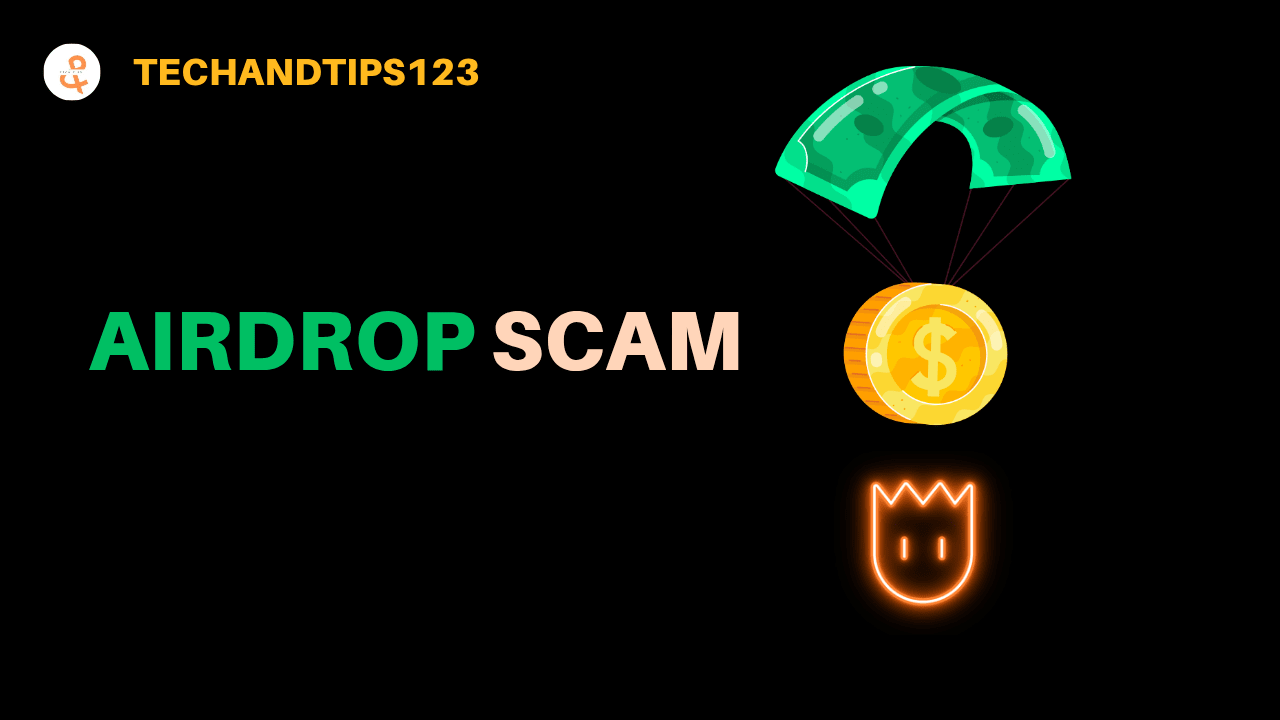
Airdrops are one of the most crucial parts of crypto culture. Most people's journey to on-chain is somehow linked with airdrops, and they play a significant role in shaping the form and structure of any project.
After 2020, the airdrop meta went mainstream. Projects like Uniswap and Arbitrum airdropped people $10,000 of free money as gratitude for testing their projects. That sum somehow attracted more and more people into the space, and the airdrop meta completely changed forever from there.
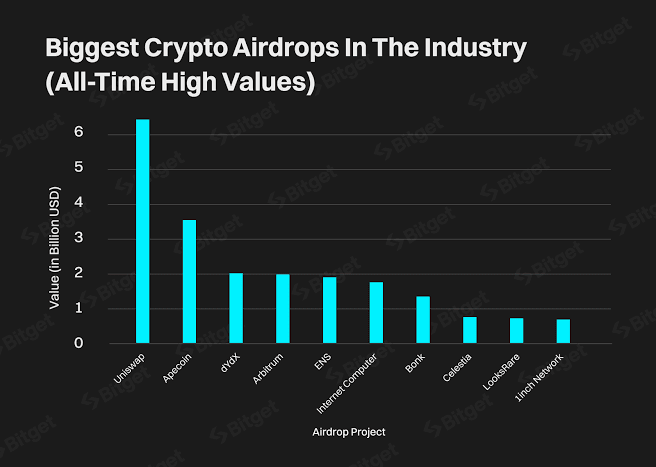
But even amid all the glittering lights, there are many black patches in this sector. Airdrops are meant to be risky. Interacting with a new dApp, unknown websites, transacting and staking money on a new protocol opens up a new world of security concerns.
According to Chainalysis, the global estimated losses in 2024 from cryptocurrency scams and fraud, which included fake airdrops, amounted to at least $9.9 billion.
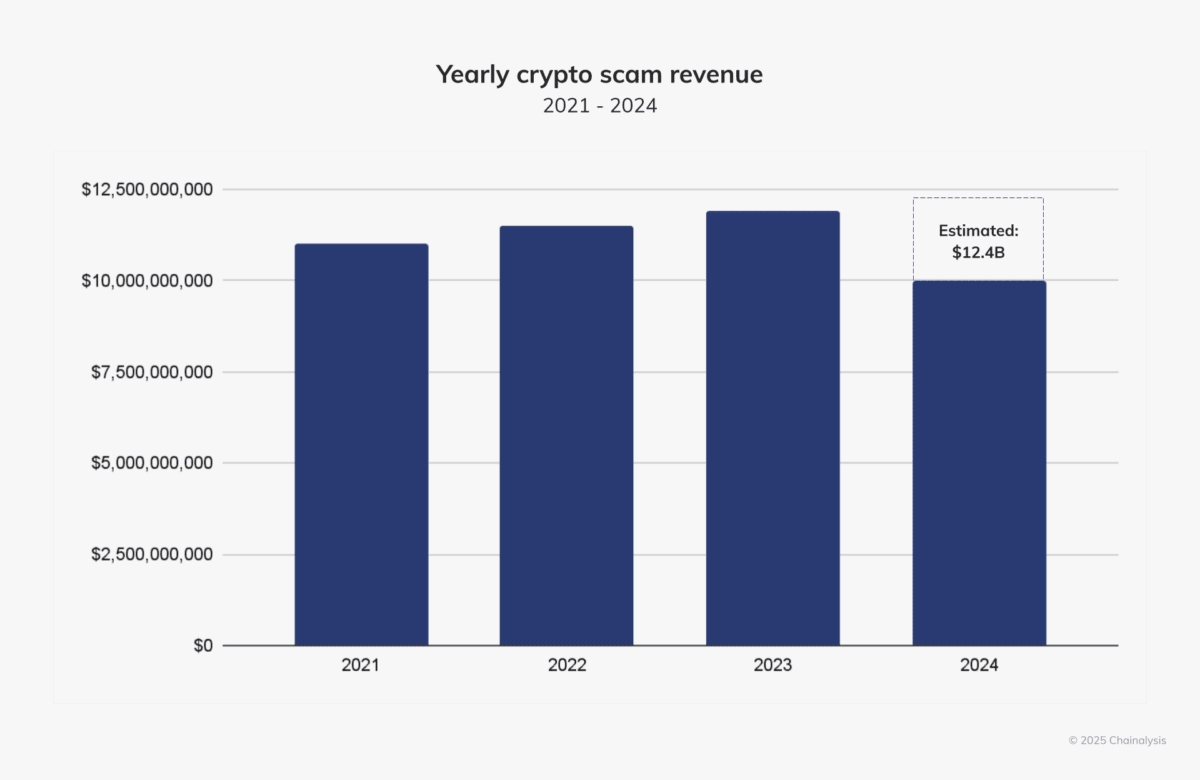
Here are some of the vicious tactics scammers use to scam you and how you can avoid them.
1. Phishing Sites and Suspicious URLs
Scammers often create convincing clones of official project websites or popular crypto platforms. These phishing sites are designed to trick you into connecting your wallet and signing a malicious transaction, giving them access to your funds.
❍ How to avoid: Always meticulously check the domain name of any website before you interact with it. Look for subtle misspellings, extra characters, or different domain extensions (e.g., .net instead of .io). Bookmark the official sites of projects you follow and access them directly through your bookmarks to avoid clicking on suspicious links from emails, social media, or direct messages.
2. Requesting Private Keys or Seed Phrases
One of the most direct methods of theft involves asking for your wallet's private keys or seed phrase. Scammers will often claim this is for "verification" purposes to receive the airdropped tokens.
❍ How to avoid: Never, under any circumstances, share your private keys or seed phrase with anyone. Legitimate airdrops will never ask for this information. Your private keys are the master key to your crypto wallet; anyone who has them has complete control of your assets.
3. Demanding Upfront Payments
A common tactic is to require a "small" payment, often for "gas fees" or to "unlock" the airdropped tokens. Once you send the payment, the promised tokens are never delivered, and your initial payment is lost.
❍ How to avoid: Genuine airdrops are free. If an airdrop requires you to send cryptocurrency to receive the tokens, it is almost certainly a scam. Be wary of any request for payment, no matter how small the amount.
4. Fake Social Proof and Unofficial Announcements
Scammers create a false sense of legitimacy by using bots or fake accounts to generate positive comments and engagement on social media posts promoting the fake airdrop. They also spread information through unofficial channels like random Telegram groups or direct messages.
❍ How to avoid: Always verify airdrop announcements through the project's official channels. Check their official website, verified social media accounts (look for the blue checkmark on platforms like X), and official community channels like Discord or Telegram. Be skeptical of announcements that appear only in unofficial groups or are sent to you via direct message.
5. Token Approval Traps
This is a more sophisticated scam where a malicious smart contract tricks you into granting unlimited or large spending approvals for a specific token in your wallet. Once you approve the transaction, the scammers can drain that token from your wallet at any time.
❍ How to avoid: Be extremely cautious when approving token transactions from unfamiliar sources. Use a wallet that clearly shows you what permissions you are granting. Regularly review and revoke unnecessary token approvals using tools like Etherscan's Token Approval Checker or other similar services for different blockchains.
6. Fake Token Contracts and Dusting Attacks
Scammers deploy tokens with the same name and ticker symbol as a legitimate, popular token. They then "airdrop" these worthless fake tokens to thousands of wallets. This is often part of a "dusting attack," where a tiny, almost unnoticeable amount (dust) appears in your wallet. When you try to swap or sell this unknown token, you are prompted to sign a transaction that gives the scammer's contract approval to drain other valuable assets from your wallet.
❍ How to avoid: Always verify the token's contract address on a blockchain explorer like Etherscan, BscScan, or Solscan. A legitimate project will have its official contract address clearly posted on its website and official channels. Ignore any unsolicited tokens that appear in your wallet. Do not attempt to trade or interact with them unless you have personally verified the contract address.
7. Malicious File Attachments
This tactic moves beyond websites and smart contracts to direct malware attacks. In community forums like Discord or Telegram, scammers may "airdrop" or send files disguised as important documents, such as a "Airdrop_Claim_Instructions.pdf" or "Airdrop_Rewards.jpeg." These files are embedded with malware, like keyloggers that record your keystrokes (capturing passwords and private keys) or wallet drainer scripts that activate when the file is opened.
❍ How to avoid: Never download or open files from unknown or untrusted sources, especially in public crypto communities. Legitimate projects will post instructions directly on their official websites and announcements, not ask you to download a separate file. Keep your antivirus software up to date and be extremely suspicious of any unsolicited attachments.
Airdrop Opportunities Inside Binance Ecosystem
So, after avoiding bad actors and scammers, now it's time to participate in real airdrops. Of course, it's better to interact with new projects on-chain—that should be your priority. But if you want some safe play and a stable drop without doing anything harder, Binance ecosystem drops are a match for you.
1. Binance Launchpool
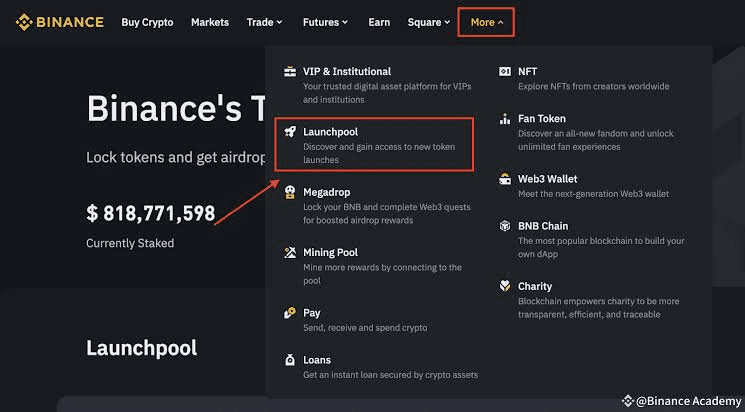
Binance Launchpool is a platform where users can earn new tokens by staking supported assets such as BNB, FDUSD, or other eligible tokens. It provides early access to new projects and allows users to farm tokens at no extra cost. Launchpool is open to users who have completed identity verification and are in eligible jurisdictions. The platform frequently features new projects, and rewards are distributed proportionally based on the amount and duration of tokens staked.
❍ How To participate : log in to your Binance account, navigate to the Launchpool section, and select the project you wish to join. Choose the asset pool (e.g., BNB, FDUSD), lock your tokens, and start earning rewards. You can view and claim your airdropped tokens at any time during the event, and all unclaimed tokens will be automatically credited to your spot wallet after the locking period ends. There is no maximum cap per user, and the more you stake, the more rewards you receive.
2. Binance Alpha
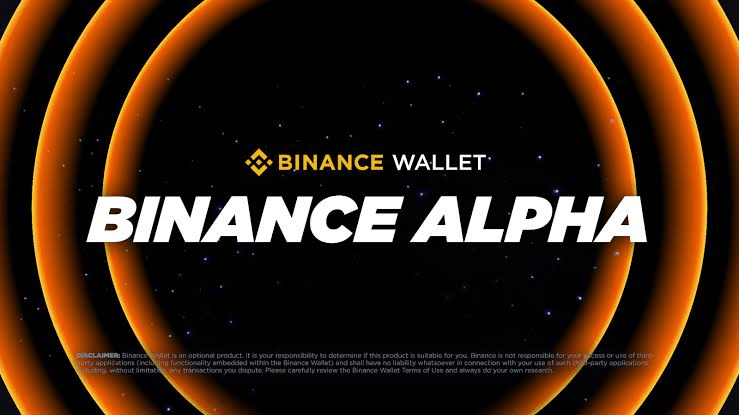
Binance Alpha is an engagement program that rewards users for participating in various activities within the Binance ecosystem. By accumulating Alpha Points through tasks, users can become eligible for exclusive airdrops and other rewards. The program is designed to incentivize active participation and learning, often featuring collaborations with new projects and special campaigns.
❍ How To participate : users need to complete specific activities to earn Alpha Points. When an airdrop is announced, check if you meet the minimum Alpha Points threshold for that event. Eligible users can claim the airdrop on the Alpha Events page within the specified window, and claiming will deduct a set number of Alpha Points from your balance. Make sure to follow the instructions for each campaign, as requirements and point thresholds always change.
3. Binance Megadrop

Binance Megadrop is a token launch platform that integrates Binance Simple Earn and the Binance Web3 Wallet, offering users early access to select Web3 projects before they are listed on Binance. Megadrop combines engagement, education, and rewards, making it an interactive experience for users to earn airdrops by locking BNB or completing Web3 quests.
❍ How To participate: log in to your Binance account and access the Megadrop section. You can lock BNB in Binance Simple Earn’s Locked Products to earn points, with higher amounts and longer lock periods yielding more rewards. Alternatively, boost your score by completing Web3 quests using the Binance Web3 Wallet. Rewards are distributed based on your accumulated score, and airdropped tokens are credited to your Binance spot wallet.

